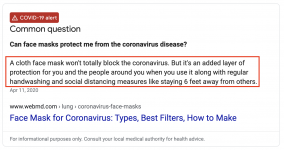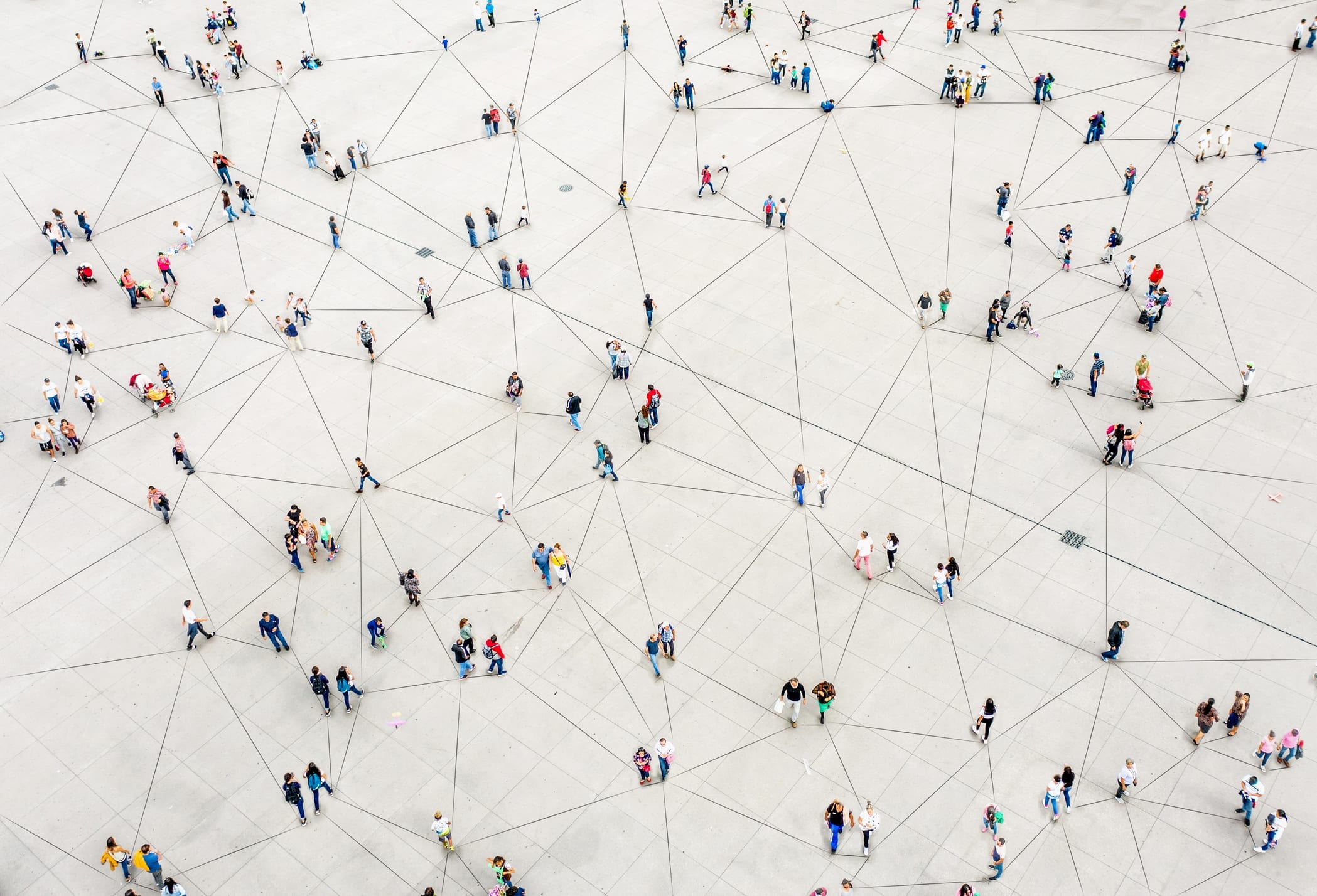Face masks are emerging as one of the most powerful weapons to fight the novel coronavirus, with growing evidence that facial coverings help prevent transmission—even if an infected wearer is in close contact with others.

www.wsj.com
From the article - weasel words in
bold:
"New research
suggests that face coverings
help reduce the transmission of droplets"
"facial coverings
help prevent transmission"
"masks
help reduce transmission"
"masks
might offer
some personal protection from the virus,"
These weasel words are used as a way to say something that legally, or truthfully, cannot be said. They imply an assertion when no assertion is actually made. Weasel words work by making you think you've read something that hasn't actually been written.
One of the studies cited comes with a disclaimer: "
The study, which analyzed the droplet spread of a healthy volunteer after capturing it on video,
hasn’t yet been peer-reviewed."
Another word that's used in the article is "believe". "Believing" is an opinion that is not based on objective reality. Many people believe in fairies - but that doesn't make fairies a reality.
"director of the Centers for Disease Control and Prevention, said he
believes the pandemic could be brought under control over the next four to eight weeks"
"she
believes some masks can likely filter out a majority of large viral droplets."
"She
believes that, excluding N95 masks, multilayered masks with a slightly waterproof outer layer best minimize spread."
"Stanford researchers
believe can
better prevent virus particles" I italicized "better" because that's another weasel. "Better" suggests a quantitative amount but does not actually specify the amount. The word is meaningless.
Then there is the outright confused statement:
"The CDC doesn't recommend face shields for everyday activities or as a substitute for masks, citing a lack of evidence of their effectiveness for reducing Covid-19 spread." So, there's a lack of evidence of the effectiveness of face shields for reducing Covid-19 spread. Great. But in the next sentence (ignoring the weasel word):
"During a simulation, researchers found that wearing a face shield helped reduce exposure to an influenza-laden cough."
So there's no evidence for reducing Covid-19 spread but researchers found it helps reduce exposure. Does that mean that reducing exposure to the virus doesn't reduce the spread of the virus?
Try reading articles like these but with the weasel words removed. For example:
Instead of: "New research
suggests that face coverings
help reduce the transmission of droplets"
Read it as: "New research demonstrates that face coverings reduce the transmission of droplets"
Or
"masks
might offer some personal protection from the virus,"
"masks offer personal protection from the virus,"
Then ask yourself - if that's what they meant...why didn't they write the sentences that way?















